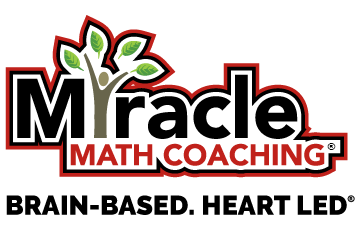How the Stock Market can Help your Child with Math
By Deanna Hurn, Founder and Executive Director of Miracle Math Coaching
Probably like you, I don’t have a lot of time to plop down in front of the television or sit at the computer to catch up on current events (what with all the cooking, cleaning, acting as chauffeur, helping with homework and the little matter of running a small business). I know there’s an important election in November in this country, and lots of bad news is coming from countries far away from here.
I do happen to catch snatches of news, and I recently realized that a certain kind of story can help get my kids more interested in Math. As you’d guess, stories having to do with numbers are the easiest to translate into Math games. Look for numbers that fluctuate, and invent a game around them. Here are three examples:
The Stock Market: Sure, countless professionals devote their lives to analyzing and predicting the stock market, but you don’t need to be an expert. Forget trying to explain the concept of the Dow Jones or what impact a negative earnings projection has on share prices.
Instead, tell your kids that they can “buy” part of a company by purchasing stock. Have them choose a company they already know something about, like Netflix, Nike or Mattel and pretend to sell them a share of stock (or 5, 10 or 20 shares to throw in some multiplication). You can even create your own stock certificates to make it seem more real. Then show them how to follow the stock from day to day online.
Periodically, you can quiz them on how much money they’ve made or loss. In addition to honing their addition, multiplication and percentage skills, you might interest them in following business news. Mattel just made an announcement about new Barbie dolls. Is Nike introducing a new line of shoes? Has Netflix begun offering its service in any new countries?
The Presidential Election: Your children might have overheard you discussing candidates, but you don’t have to get into who to vote for (unless you want to). But do introduce them to the idea of poll numbers – the percentage of people expected to vote for a candidate.
As you know, poll numbers are everywhere. And they change quickly. Choose one source – such as ones put out by the Wall Street Journal/NBC, the Gallup organization or Nate Silver, a statistician famous for accurately predicting the outcome of the last presidential election (his website is FiveThirtyEight). There are dozens of different polling groups; by following the poll numbers of just one source, you’ll sure to be comparing apples with apples.
As with the stock market, have your children track how well a candidate is doing. The timing between polls is longer than daily stock checks, but the idea is the same. During dinner, you can discuss how events (speeches, debates, endorsements) impact the numbers. And now that voting has started with the Iowa caucuses, you can have your child compare the polls to what actually happens.
Gas Prices. If you want to tie the news to everyday life, have your child track the cost of oil per barrel and how that impacts what you pay at the pump. Oil prices have made headlines recently because they’re at historic lows. Oil is now about $32 a barrel, compared to more than $100 a barrel just a few years ago.
You can help your son or daughter look for news of changes in oil prices and see how much gas prices increase or decrease a day or two later. Then you can try to predict what a change in the price of oil has on how much money you need to fill up your car.
Math is everywhere around us. And as I’ve mentioned before, just talking about it helps your child become more confident in his or her skills. And you need look no further than the day’s headlines to help reinforce what they already know.
In a future post, I’ll discuss how to use sports stories to improve your child’s grasp of Math.
If you’d like to find out how we can support your child academically, please call me at 707-398-3474, ext. 2700. Better yet, book a FREE meeting with me through our website. Miracle Math Coaching is an award-winning, student-focused service with a track record of boosting academic achievement.







